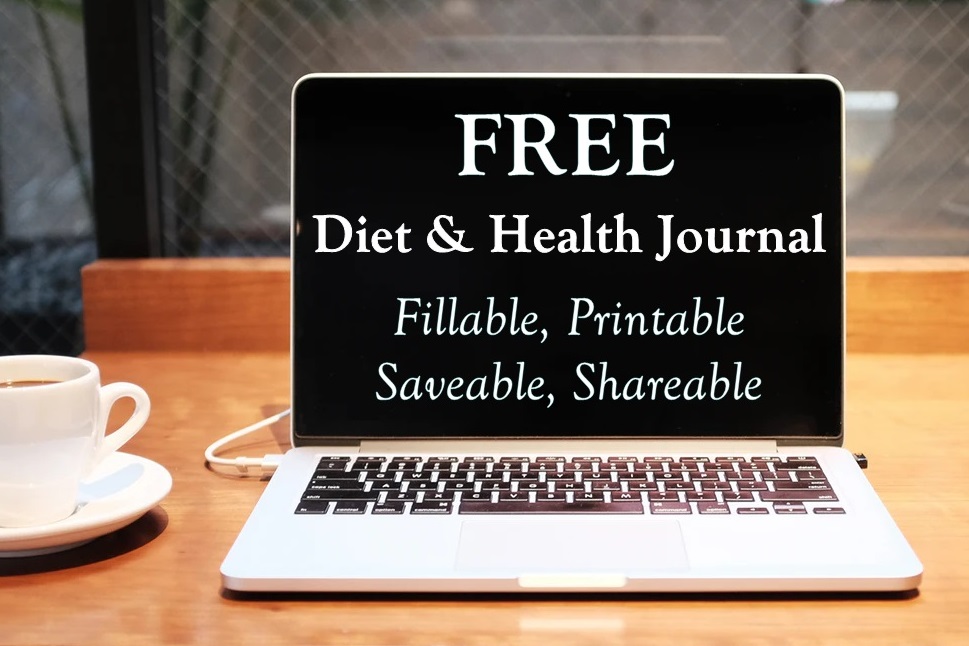[ad_1]
Yes, going dairy-free can lead to weight loss. Over the years, we’ve received hundreds of personal reports and comments from people who have promptly lost weight on a dairy-free diet. Even my husband dropped 15 pounds in just a couple dairy-free months, with no other changes to his lifestyle and diet. But Why? And will everyone see these benefits?

This post is for informational purposes only and should not be construed as medical advice. Always consult a physician before undergoing any change in diet.
Can a Dairy-Free Diet Help You Lose Weight?
There is no one-size-fits-all diet, as reflected in a wide range of study results over the years. Some fervently link dairy consumption to weight gain, while others tie it to weight loss. But scales don’t lie – many people do shed weight on a dairy-free diet (I’ve included just a few of their stories below). And based on the science, we know there are at least a few reasons why this might happen.
Naturally, Your Calorie Intake Probably Went Down
Dairy contains a lot of calories. A single glass of low-fat milk, just 2 tablespoons of heavy cream, and 1 ounce of cheese each contain over 100 calories. It adds up, quickly. When you cut out dairy, you’re automatically removing calorically dense foods. If you don’t replace them with other heavy foods, then your overall calorie intake will go down, and you will probably mitigate weight gain or lose weight. There are many dynamics that go into how we metabolize foods, but sometimes weight loss is that simple.
The best part of this dairy free diet is the amount of weight I have lost. I have lost about 30 to 35 pounds. I was originally over 200 pounds. My waist got smaller and I had to give away all of my clothes. This is something that truly works. I didn’t even exercise! – Shantell
Related Facts: In 1970, Americans ate an average of 11 pounds of cheese per year. In 1996, that number was up to 28 pounds, and by 2020 it was over 40 pounds.
A Reduction in Inflammation Can Unlock Weight Loss
Scientists might argue whether milk is an anti- or pro-inflammatory food. But almost all agree, that autoimmune and allergy triggers are inflammatory. By their very nature, immune responses can manifest as various types of inflammation. And milk is a top food allergen and a trigger for many people with autoimmune conditions. Some people might not even realize milk is an inflammation trigger for them, until they cut it out. And for some people, reducing inflammation is the key to weight loss.
At two months, my daughter was diagnosed with a dairy and soy allergy. I took all dairy and soy out of my diet immediately and kept nursing. She is happy and flourishing, and I’ve lost a full 100 lbs since her birth! Now she’s 10 months, doing well, and nursing happily. With the great weight loss, two dairy-allergic kids, one on the Autism Spectrum and one with ADHD, we’re loving being dairy-free! ~ Anastatia
I have been dairy free for a year now and have never felt better. I have lost 26 pounds in the last year. That is a huge accomplishment for me. The best part of it is that I have never looked at it as a diet. Rather, I look at it as a lifestyle change. I am motivated to stick with a non-dairy diet because if I eat dairy, that day and night, I suffer from heartburn and reflux, and my asthma symptoms start to kick back in. – Gary
Related Facts: The American Autoimmune Related Diseases Association (AARDA) estimates that 15% of the U.S. population, roughly 50 million Americans, has one or more autoimmune disease. And according to Food Allergy Research & Education (FARE), 32 million Americans have food allergies (close to 10% of the U.S. population), and 6.1 million have a milk allergy specifically.
You Might Drop Inches, but Not Pounds
Milk allergies and lactose intolerance can cause digestive symptoms, including bloating. For some people, it’s several pant sizes of puffiness. In these cases, cutting out dairy can deflate some visible “weight,” and comfortably tighten belts by a couple notches. This might not register as weight loss on the scale, but will effect how you feel, how you look, and how your clothes fit.
For many years, 20 or so, my stomach would balloon out and my pants would be so tight or I’d walk around with the zipper undone, feeling very sorry for myself. Finally a friend said to try leaving out the dairy and I did just that. My swollen belly disappeared right away and it’s been such a relief for me and I feel so much lighter and my indigestion is a thing of the past. I have to be very careful, even the tiniest bit will make me bloat right away. It really is so worth it all though. – Louise
Related Facts: Lactose intolerance and Irritable Bowel Syndrome (IBS) are two common medical causes of bloating. Both can promote discomfort and digestive distress, but neither has been found to cause long term damage to your intestines. They can usually be mitigated by dietary changes. Nevertheless, it’s important to consult a physician to discuss your diet and to rule out more serious conditions.
If You Feel Better, You’ll Move More
You might not even notice it, but eliminating symptoms can give you more energy. If milk is an autoimmune, allergy, or intolerance trigger for you, cutting it out might give you an extra spring in your step. This could translate into more activities and a bigger calorie burn. Almost any type and amount of exercise can help to rev up metabolism and kickstart weight loss.
I have been on a dairy-free/egg-free diet for 2 months now and for the first time in 20 years, I am ACNE FREE. And I feel GREAT – with tons and tons more energy. I’ve also lost 30 pounds. I thought I would miss all of my favorite foods but I’ve found so many wonderful new favorites and I look and feel so much better that I don’t miss anything. – Anonymous (name privacy requested)
We recently found out my 7 month old son has a severe allergy to dairy. Because I am breast feeding I decided to give it up also. I have never been a milk drinker, but ate everything else!! I have been off of dairy for two weeks and have noticed a HUGE change!! I have already lost 5 pounds. I have more energy than I have in 3 years (since my babies were born). I feel so amazing! ~ Melissa
Free Helper: This isn’t a gimmick and there’s nothing to buy or sign up for. I simply created this Diet & Health Journal to help people identify triggers, symptoms, and what makes them feel better. It’s a tool that you can share with your doctor, too. Because it stands to reason that the diet which makes you feel your best will most likely help you achieve a healthy weight!
Help! I’m Gaining Unwanted Weight! What Can I Do?
As mentioned, not everyone will lose weight on a dairy-free diet. Some people will stay the same, and some could even gain weight. If you’re trying in vain to drop pounds, here are some questions to ask.
Are You Intaking More Calories?
If you’ve substituted dairy alternatives, snack foods, or even loads of rich natural ingredients (I’m looking at you cashew “cheesecake”) for the dairy foods in your diet, it’s possible that you’re consuming more calories. Do the math to see if you might have inadvertently increased your calorie intake. A bump up in calories without an increase in calorie burn is a quick way to start packing on pounds.
Is Your Diet Balanced?
Milk products are nutritional shortcuts for many people. They supply a range of nutrients, including protein, fat, vitamins, and minerals, that help our bodies to run efficiently. You can definitely get all of these macro and micro nutrients on a dairy-free diet, but it might take a little planning at first. Imbalances can effect your energy, metabolism, or other things that might influence your weight. To help ensure your dairy-free swaps are sufficient, see How to Get the Healthy Nutrients in Milk on a Dairy-Free Diet.
Did You Increase Your Sugar Intake?
Since milk is fairly high in sugar (lactose), some people actually decrease their overall sugar intake when they cut out dairy. But if you’ve replaced the dairy in your diet with sweetened alternatives and snack foods, you might be intaking more added sugars, which can have a ripple effect on weight gain. Focusing on whole and minimally processed foods can help keep those extra sugars in check.
For Dairy-Free Guidance & Recipes, Get Go Dairy Free!
[ad_2]
Source link






